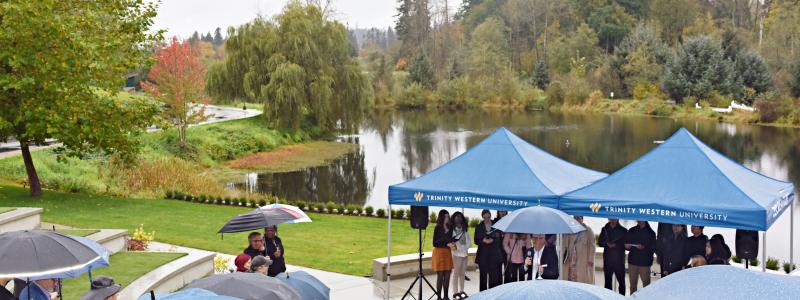TWU Langley campus is located along the shores of a significant fish-bearing river, the Salmon River. When entering the TWU Langley campus, students, faculty, staff, and visitors alike will first cross a bridge spanning its waters.
In February 2005, a trail was opened that encircles the campus and runs, in part, along this river; it was fittingly dedicated as “The Salmon River Trail.” The trail winds through TWU’s Ecosystem Study Area, an expansive 40-acre territory rich with a diversity of flora and fauna, including local animals and insect species that are native to the river’s watershed. Set aside for the purposes of ecological preservation, research, and learning, the Ecosystem Study Area also has provided recreational pleasure for nearly twenty years, as walkers and runners have regularly used the Salmon River Trail.
This month TWU celebrated the grand reopening of the Salmon River Trail.
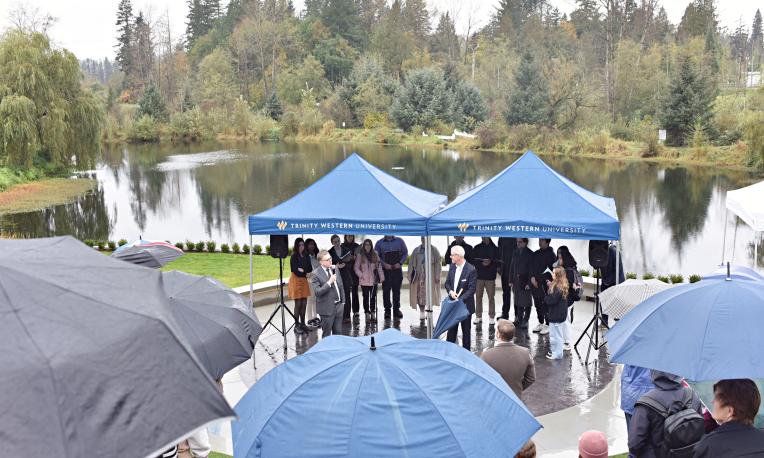
Celebrating recreation on the Salmon River Trail
To provide greater opportunities for the community to share in this gift of land, the Salmon River Trail, which wraps around McMillan Lake and wanders through the woods known as “the Back 40,” has been newly upgraded for easier access. The grand reopening event on Oct. 18 marked the occasion with a program in the Outdoor Amphitheatre hosted by TWU chaplain Rev. Dr. Ed Gerber, featuring TWU’s Siya:m Patricia Victor Switametelót, musical performances from TWU’s Choral Ensemble, sharing of stories by students and faculty, and remarks from representatives of local conservation organizations. The program was followed by recreational activities around the lake during the afternoon.

Representatives from the Langley community
Special guests included from the Mayor of the Township of Langley Eric Woodward, along with members of the Salmon River Enhancement Society, Langley Environmental Partners Society, Langley Field Naturalists, TWU's ConVersing/ConServing interdisciplinary research team, and Trinity Western Environmental Club (TWEC).
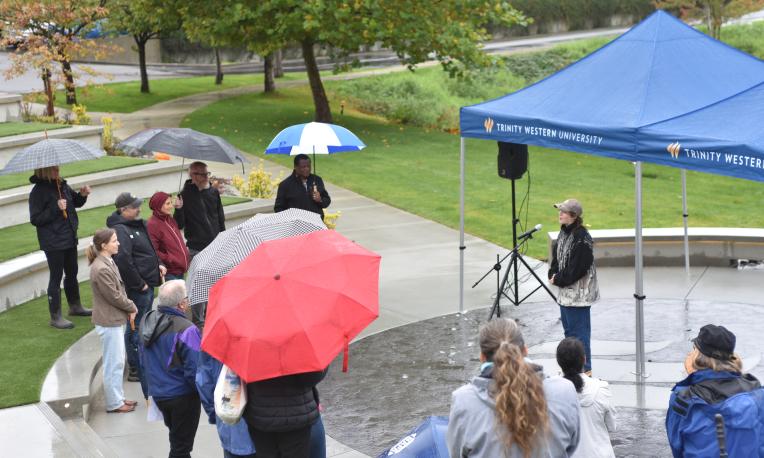
A vision for the Ecosystem Study Area
Professor of Biology and chair of the Ecological Stewardship Committee, Dr. David Clements, along with other faculty and students involved in Environmental Studies at TWU, has spent decades researching and teaching within the Ecosystem Study Area.
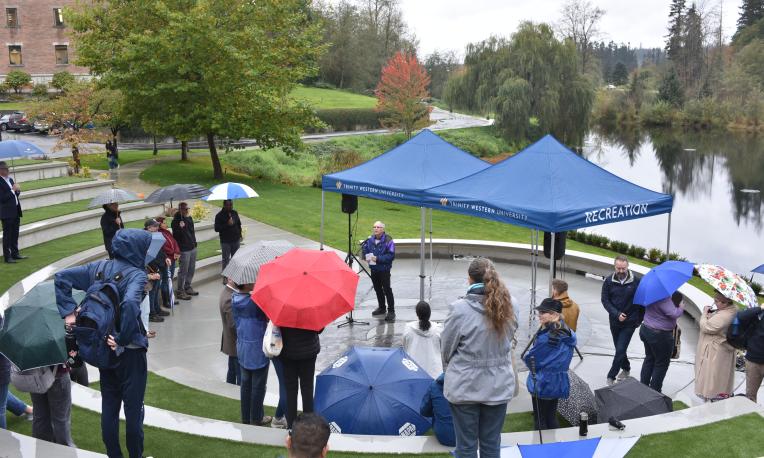
He explains that this area is a vital ecosystem with diverse and sensitive habitats. The land has been home to a wide variety of species, including 33 mammals, 156 birds, 5 reptiles, 9 amphibians, 18 fish, 11 molluscs, 4 crustaceans, over 132 insects, 192 vascular plants, 39 mosses and liverworts, 28 lichens, and 104 macromycetes (macrofungi and myxomycetes). Moreover, there are vascular plants, fungi, reptiles, and mammals present that are endangered or rare, and several rare or endangered bird species have been observed on campus.
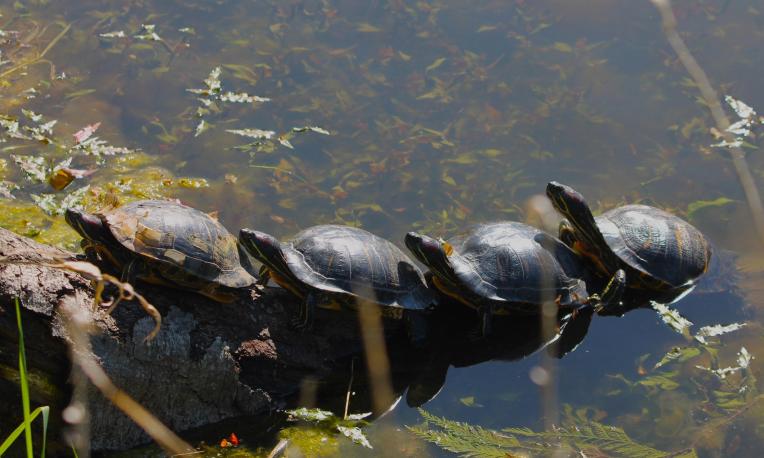
Beyond ecological study
Yet, from the start, the vision for this area went beyond ecological study. Dr. Clements says, “At the end of our proposal to establish the Ecosystem Study Area in 1998, we noted: ‘Even the relatively simple act of establishment and designation of an ecosystem reserve calls attention to its availability, and consequently serves to generate a variety of uses and programs beyond those already in existence—not only in the natural sciences and the creative arts, but in unanticipated areas as well.'”
The ConVersing/ConServing project comes alongside environmental sciences with creative writing and other imaginative activities to bring people into conversation with the natural environment, seeking to
invigorate creation care and mitigate eco-anxiety.
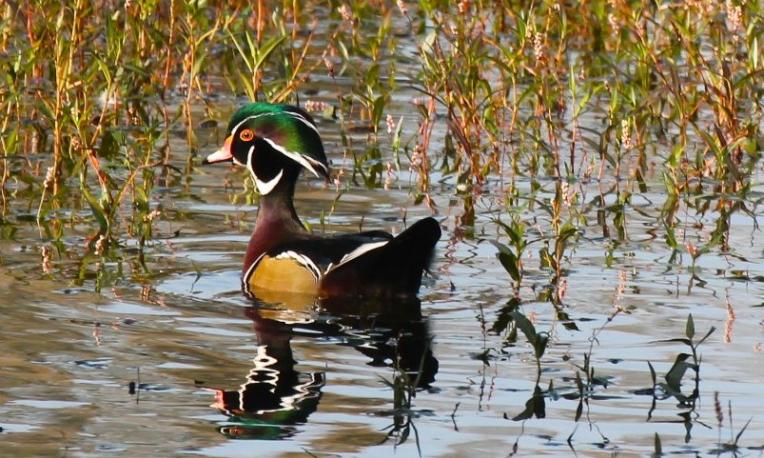
Conversing with the gift of land
Recently the land surrounding the Salmon River Trail has been the location for an interdisciplinary research endeavour, the ConVersing/ConServing project. Since 2023, English professors Drs. Katharine Bubel, Holly Faith Nelson, Laura Van Dyke, and Jessica Walters (MFA) have led the project that comes alongside environmental sciences with creative writing and other imaginative activities to bring people into conversation with the natural environment, seeking to invigorate creation care and mitigate eco-anxiety.
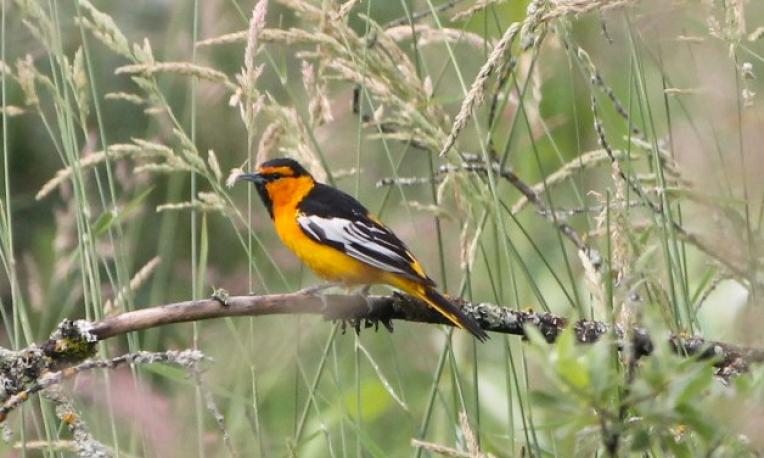
Literature to honour the land
This year, the team produced a chapbook, ConVersing/ConServing: The Gift of the Land. The publication is a print collection of essays, poetry, and artwork that represents the reflections, memories, inquiries, and creative expressions of TWU faculty, staff, students, and alumni, as they integrated the perspectives of Indigenous Knowledge Holders, Christian faith, literature, environmental science, visual arts, and physical geography. A new edition was printed in time to commemorate the trail opening.
"Walking along the Salmon River Trail has inspired art and invited spiritual practices through the years, and it continues to be a source of calm and re-creation."
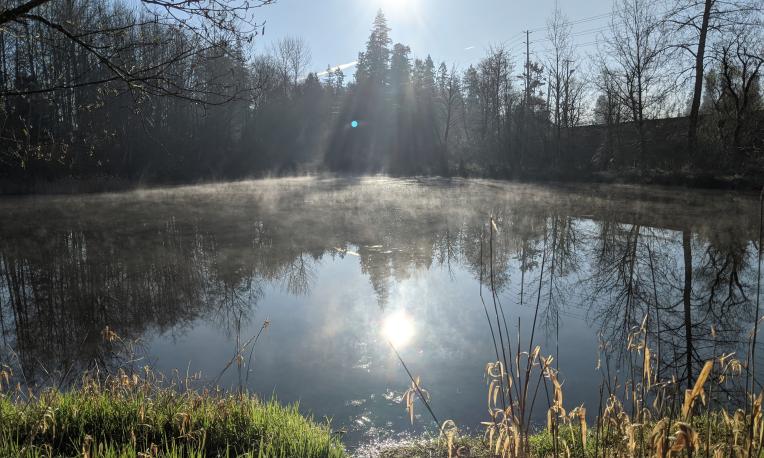
'The land is a gift'
On behalf of the ConVersing/ConServing team, Katharine Bubel comments: “It has been enriching to attend to how our learning takes place. This campus land is richly layered, not only with the sediment of river and woods, but also with unusual and unsettling stories. Walking along the Salmon River Trail has inspired art and invited spiritual practices through the years, and it continues to be a source of calm and re-creation. The land is a gift, as the founders of TWU realized. We hope gratitude and care for it will be revitalized as more people discover the trail.”
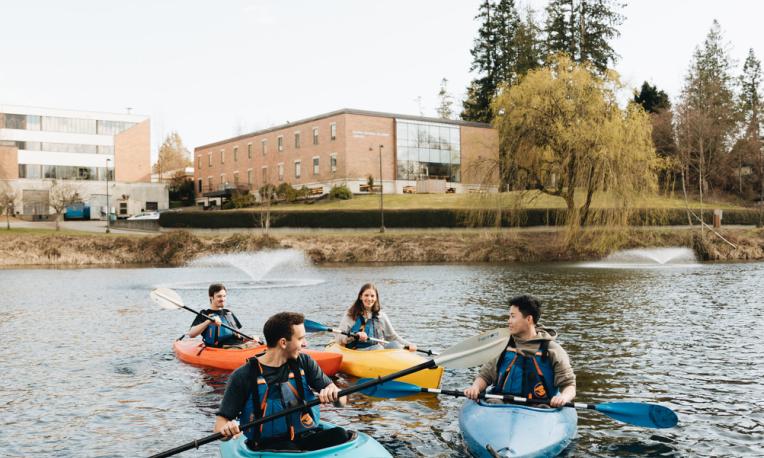
"The response to these improvements has been amazing—
so we have much to celebrate.”
'Labour of love' to care for the trail
On behalf of TWU’s Ecological Stewardship Committee, Dr. Clements acknowledges the labour of love Land Manager Chris Hall and his team have put into the making and upkeep of the trail. He especially thanks Facilities and Recreation for the financial and visionary support: “Without the extraordinary foresight of folks like Jared Ginter seeing the value of the trails as a key piece of our recreation infrastructure for Trinity Western students, this project simply would not have happened.”
Director of Athletic Facilities & Recreation Jared Ginter and Senior Intermural and Sport Club Coordinator Mark Olthuis know that outdoor education and recreation play a critical role in students’ formation, and enrich their social, mental, spiritual and emotional health and well-being. The value of outdoor life is the reason why the Salmon River Trail refurbishment has the support of TWU’s student community. Through funding from student fees, the entire campus community are invited to rediscover the wealth of natural habitats and the space for recreational learning within campus grounds.
They express, “It has been a pleasure working with David Clements, Chris Hall, and their team to collaborate on enhancing the amazing outdoor space and opportunities we have for students. The Recreation Enhancement Committee who approved funding to help the revitalization of the trail system over the last two years is really excited to be a part of a wonderful day to celebrate and revel in God’s creation."
"The response to these improvements has been amazing—so we have much to celebrate.”

About Trinity Western University
Founded in 1962, Trinity Western University is a global Christian liberal arts university. We are dedicated to equipping students to discover meaningful connections between career, life, and the needs of the world. Drawing upon the riches of the Christian tradition, seeking to unite faith and reason through teaching and scholarship, Trinity Western University is a degree-granting research institution offering liberal arts and sciences as well as professional schools in business, nursing, education, human kinetics, graduate studies, and arts, media, and culture. It has four locations in Canada: Langley, Richmond-Lansdowne, Richmond-Minoru, and Ottawa. Learn more at www.twu.ca or follow us on Instagram @trinitywestern, Twitter @TrinityWestern, on Facebook and LinkedIn.
For media inquiries, please contact: media@twu.ca.

